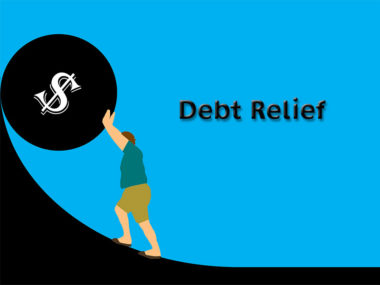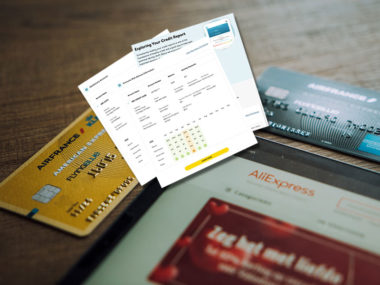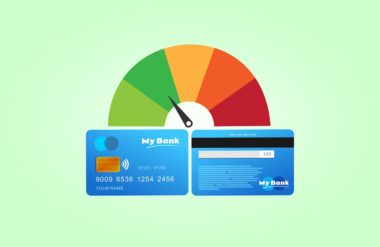When debt threatens your overall financial well-being, you have options for help getting relief. One of those options is debt consolidation, which means combining multiple debts from different sources into one single debt, usually in the form of a low-interest credit card or a debt consolidation loan. Unlike options such as bankruptcy, your debt isn’t eliminated, but simply made easier and more affordable to repay.
Although you may be able to consolidate debt on your own by applying for a new card or loan and transferring balances, working with a debt consolidation company may make the process easier. However, not all debt consolidation companies are created equal, and many are actually debt settlement companies in disguise.
Going about consolidation incorrectly can be devastating to your credit, so it’s important to understand exactly how the process works, the policies of the company you choose, and how it compares to other debt relief options.
Table of Contents
What Is a Debt Consolidation Company?
A debt consolidation company is an organization that aims to help individuals get out of debt by reducing the overall amount they owe. This is often done by settling the debt with the creditor for a reduced amount.
Types of Debt That Can Be Consolidated
At first glance, consolidating your debt may appear to be an efficient way to reduce your debt quickly and get everything paid off. However, not all types of debt can be consolidated.
Debts that are typically eligible for consolidation include:
- Credit cards, including store cards and gas cards;
- Personal loans;
- Payday loans;
- Private student loans;
- Lines of credit;
- Hospital and medical bills;
- Unenforced court judgements;
- Unpaid rent and utilities, including cell phone bills;
- Auto repossession loan overages.
Debts that cannot be consolidated include:
- Mortgages;
- Auto loans;
- Home equity lines of credit;
- Loans for RVS or boats;
- Back taxes;
- Government loans (including student loans);
- Lawsuit judgements.
How effective debt consolidation will be at reducing your debt, then, depends on the type of debt you have. If you are over your head mostly due to home and auto loans, for instance, other debt relief options like bankruptcy may be a more effective option.
What Is a Debt Consolidation Program?
In its truest form, debt consolidation is actually a DIY process. You control how you repay your debt by transferring it to a credit card with a lower interest rate or taking out a loan to pay off credit cards.
However, some companies bill themselves as a debt consolidation service because clients pay them a single monthly payment, which is then distributed to creditors. However, unlike debt management programs which reduce your payments and help you get out of debt by negotiating with creditors to reduce interest and fees, debt consolidation companies aim to reduce the amount you owe by settling your debt.
Unfortunately, debt settlement usually requires that you stop making payments to your creditors, often for at least six months. Instead of paying your debts, you pay the debt consolidation company, which puts the money in a type of “savings account.” Once your balance reaches a certain point, the consolidation company will start negotiating settlements with your creditors. The agreed upon amounts (plus a fee to the consolidation company) are then paid from your account.
Benefits and Disadvantages of a Debt Consolidation Program
Generally speaking, a debt consolidation program isn’t ideal for your overall financial health. There are some benefits, though, primarily that you can get your debts paid off, sometimes for much less than you would spend on your own.
However, the disadvantages are numerous. These include:
- Your credit will take a hit: Because consolidation companies tell you not to pay your bills until they’ve negotiated the settlement, your credit report will reflect missed payments, and possibly a charge off.
- There’s no guarantee of a successful settlement: Not all creditors are willing to settle debts. If they don’t, you’re on the hook for the full balance, plus the fees and interest accrued while you didn’t pay.
- Most consolidation companies charge fees: These fees are based on a percentage of your overall debt, and can be significant (up to 25% of the amount owed), ultimately reducing the savings you see by settling.
- You will receive collection calls: While your accounts are in negotiation, creditors will contact you for payment. You are also vulnerable to lawsuits for unpaid bills.
- Settlement can take up to three to four years.
What Is a Debt Consolidation Loan?
An alternative to working with a debt consolidation company that settles your debt is a debt consolidation loan. A type of personal loan, a debt consolidation loan gives you cash to use to pay your debts. You then make a single monthly loan payment, usually at a lower interest rate.
Benefits and Disadvantages of a Debt Consolidation Loan
The advantage of a debt consolidation loan is that you can pay off multiple debts, which may have a positive effect on your credit score. Making a single loan payment also reduces the chance that you’ll make late payments or miss payments. You can save money by consolidating high-interest debt into one lower interest loan.
On the downside, taking out a loan can reduce your credit score; opening a new account requires a hard inquiry, and a new account increases the total number of accounts you have open. You also need to repay the entire amount you owe, so if you are already underwater and struggling to make minimum payments, it may not help very much.
What to Look for in a Debt Consolidation Company
Again, not all debt consolidation companies are created equal, and some are better at helping you get control of your finances than others. Should you opt to go this route, choosing the right company can make a difference to your experience. Consider the following when evaluating companies:
Customer Service
It’s important that the company is on your side, and is committed to helping you get — and stay — out of debt. This means providing clear, honest communication and having a reputation for success with integrity. Ask how the account representatives are compensated, as companies that reward counselors for selling additional products and services should be avoided.
Transparency
Information about the company should be readily available, and counselors should answer your questions clearly and fully. Look for information about how long the company’s been in business, who is in charge, where they are located, success rates, processes and procedures, and how long programs typically take. You should always know who you are talking to, be able to get in touch when necessary, and be aware of what’s going on with your account.
Longevity and Trustworthiness
How long has the company been in business, and what is their track record? Check the Better Business Bureau for complaints and how/if they were resolved. Ideally, choose a company with at least 10 years in business.
Counseling and Education
Getting your debts paid is only the first step to financial success. A debt consolidation company should provide some education and counseling to clients to help them understand why they are in debt, and how to avoid making the same mistakes. Offering these services is required of nonprofit organizations.
FTC Rules and Regulations for Debt Consolidation
In the interest of protecting consumers from unscrupulous debt consolidation companies, the Federal Trade Commission regulates these businesses under the Telemarketing Sales Rule (TSR). The regulations in place include:
- A prohibition against charging fees for services in advance;
- A requirement to provide clear information about fees, how long the program will last, and the potentially negative effects of using the service;
- Prohibitions about making unsubstantiated claims.
These rules don’t prevent some companies from taking advantage of consumers, but knowing the rules and your rights can help you spot scams and make the best decision.
Are They Worth It?
Ultimately, the question of whether working with a debt consolidation company is worth it remains unanswered. The short answer is that if you can eliminate your debt by other means, then do so. It can take a long time for your credit to recover from the damage, and the fees for consolidation can negate a significant portion of any savings.
However, if you are already well behind on your payments, and other options aren’t feasible, debt consolidation may be worth considering. Take care to watch for scams, do your diligence to evaluate the company’s reputation, and understand exactly how much it will cost and when you’ll be done with the program.
Image Source: https://depositphotos.com/





